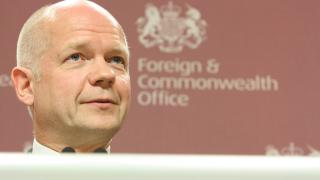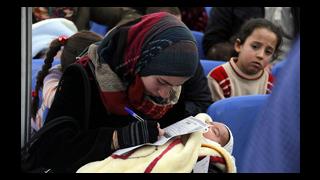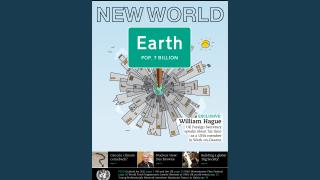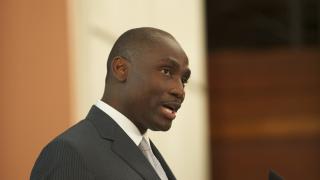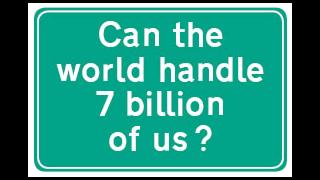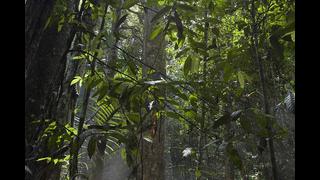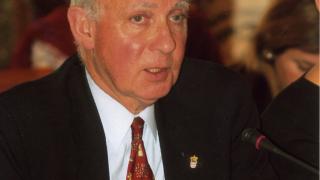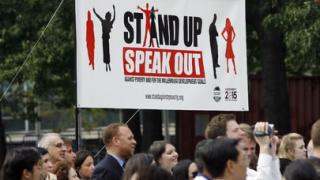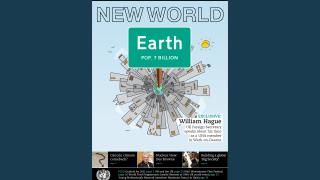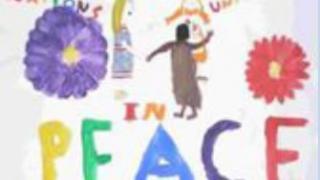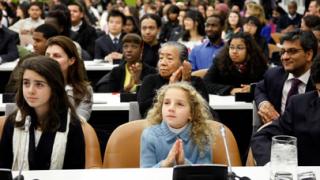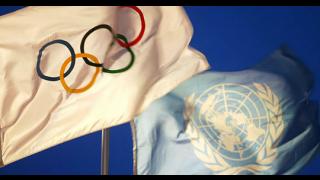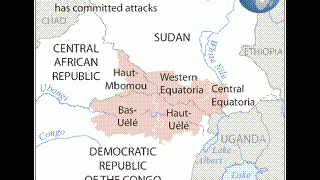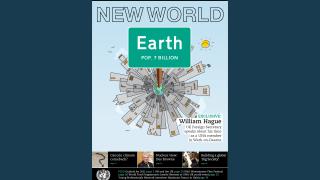
NAME: Marianna Franco
JOB: Programme Development Manager, ACTED
PLACE OF WORK: Port-au-Prince, Haiti
YPN MEMBER SINCE: 2010
What do you do at ACTED?
During my four-and-a-half years at the NGO ACTED (Agency for Technical Cooperation and Development) I have had the chance to take on different positions in several countries. After an internship at the Paris headquarters, I began my first field position in Afghanistan, starting as a Reporting Officer and later becoming Reporting Manager, producing project proposals and reports for donors and developing communications strategies.
At the end of my two-year assignment there, I was sent to India as Team Leader of ACTED's emergency response to the 2008 floods in Bihar. I spent a year in the Middle East as Regional Programme Development Manager, serving in Jordan, Palestine, Lebanon, Syria, Iraq and Yemen.
On 13 January 2010, on return from an exploratory mission in Yemen, where thousands of people had been caught up in fighting between government troops and Al Houti forces, I received a call asking me to go on an emergency support mission to Haiti, which had just suffered a devastating earthquake. I reached Port-au-Prince ten days later and am still based there as Programme Development Manager, liaising with the UN, NGOs and the donor community, and developing ACTED's emergency interventions and longer-term recovery activities.
In March I will be rejoining the Paris headquarters to oversee all ACTED's countries with a focus on linking emergencies to reconstruction and then development.
Wow. That’s some four-and-a-half years. What motivates you to keep going?
When you work for such a dynamic NGO you are exposed to new challenges on a daily basis and your professional growth is incredible. ACTED is very much field-based and relies heavily on young motivated professionals, so your opinions are taken into account by senior managers and, providing you demonstrate you can achieve your targets in a qualitative way, you are given the opportunity to set your own goals.
What qualification or experience do you think most helped you to get where you are?
My background in international relations, humanitarian law and human rights has certainly been an asset, as have research and analytical writing skills. And continuing education (long distance) on more specific skills, such as managing emergency operations, enabled me to change roles more easily within the organisation. Yet, the 'skill' that I have found the most useful so far has been, without doubt, curiosity! Whether it is exploring contexts, problems and solutions; listening to people’s needs and ideas; or establishing links with different stakeholders; being passionately curious is what continues to drive my personal and professional development in the humanitarian field.
Which posting have you found the most challenging/rewarding?
A difficult question! Each setting was unique, and challenging and rewarding at the same time. Working in the field is an incredibly enriching experience. But it can be overwhelming, especiallyin remote and/or insecure areas which call for strict security protocols. Emergency contexts are highly intense, personally and professionally, 24 hours a day, and you need to be ready as keeping a more or less balanced life is very challenging indeed!
How would you summarise your year in Haiti?
The first two months were incredibly tough: long working hours in precarious conditions, an extremely complex operating environment and massive urgent needs to respond to. ACTED has been present in Haiti since 2004 but our earthquake emergency response required a substantial scale up, operationally and structurally. It was an interesting process to be part of and when my support mission came to an end, I felt too committed to leave and requested a permanent assignment.
My main objective was to contribute to the development of an intervention strategy flexible enough to adapt to the changing context and to ensure that a pertinent response was given to evolving needs. We started with emergency distributions of food and non- food items; we then ensured access to water and sanitation facilities and provided quick income-generating opportunities to the most vulnerable people. As ACTED is committed to both relief and development, strategic discussions quickly turned to long-term reconstruction efforts whilst simultaneously planning for shorter- term needs, such as preparing for the cyclone season.
2010 has certainly not been a kind year to Haiti. October saw a new emergency - a cholera epidemic - spread through the country. A couple of weeks later, Hurricane Tomas struck, threatening the 1.2 million Haitians still living in tents. The year ended with protests and barricades following the disputed elections, which we feared could hinder NGO access to vulnerable communities.
Being an aid worker in post-earthquake Haiti is possibly my most difficult assignment to date – my commitment was pushed to the limit. ‘Macro’ needs being met with 'micro' solutions make you question humanitarian operations as a whole and your role as an individual within them. But despite all its ups and downs, this year has been one of the most interesting experiences I have had so far. I have finally found my answers to these questions and believe there is still a lot I could do within this field.
ACTED (Agency for Technical Cooperation and Development) is a non-governmental organisation that supports vulnerable populations affected by war, natural disasters and/or economic and social crises

